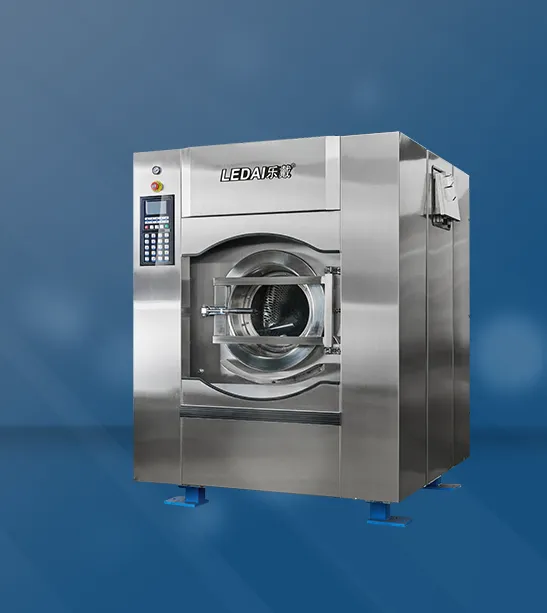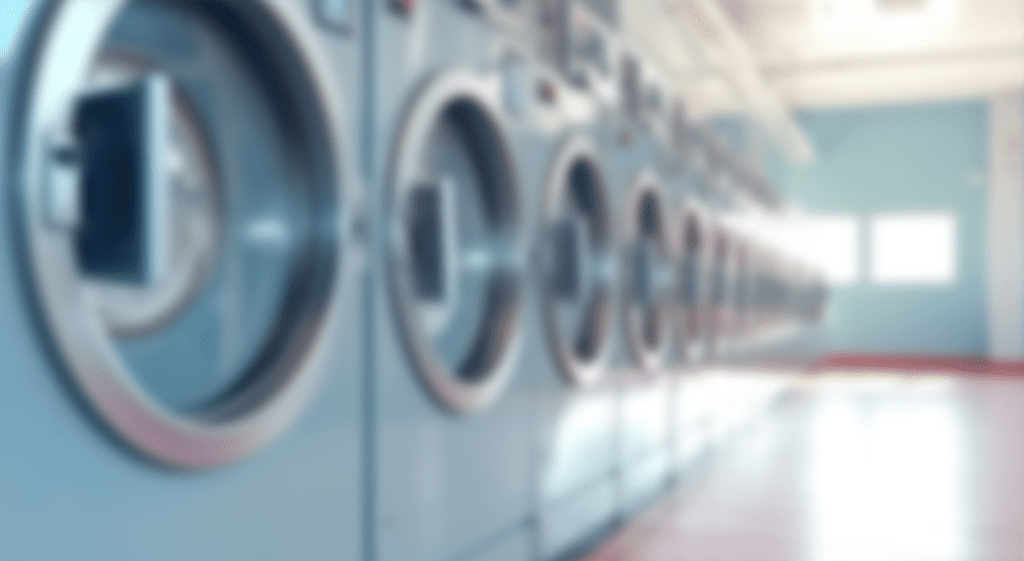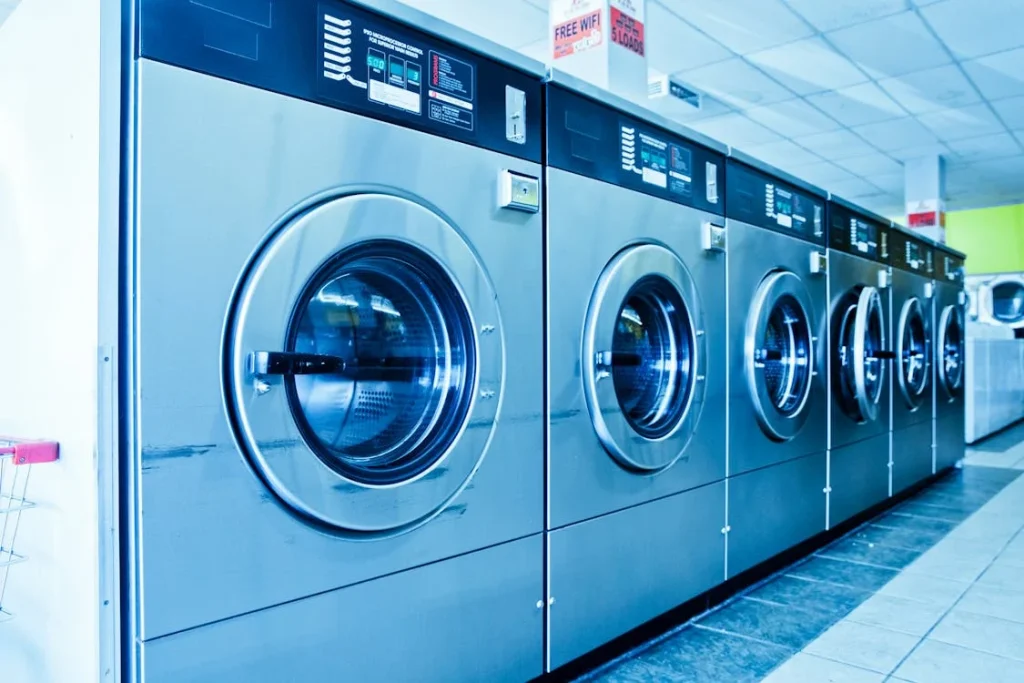One area where businesses can save time and improve operations is in their laundry processes. But how do you know if industrial laundry is the right solution for your needs? In this article, we’ll take a deep dive into industrial laundry services, exploring their costs and benefits to help you determine whether this is the right choice for your business.
Table of Contents
- 1. Understanding the Need for Industrial Laundry
- 2. The Cost Factors Involved in Industrial Laundry
- 3. The Benefits of Industrial Laundry
- 4. When Industrial Laundry May Not Be Right for You
- 5. Making the Decision: How to Evaluate Your Needs
- 6. Conclusion
- 7. Frequently Asked Questions
1. Understanding the Need for Industrial Laundry

Running a business, especially one that handles large volumes of linens, uniforms, or textiles, can be challenging. Dirty laundry piles up quickly, and finding a reliable, cost-effective way to clean and maintain these items is essential. Industrial laundry services are specifically designed to handle these high-volume needs with speed and efficiency.
1.1. What is Industrial Laundry?
Industrial laundry refers to large-scale laundry services typically used by businesses in industries like hospitality, healthcare, manufacturing, and food services. These services handle everything from linens and uniforms to towels and cleaning rags, providing a professional-grade clean. Using specialized equipment, these services are equipped to process large amounts of laundry quickly and effectively, ensuring top-notch results.
1.2. Key Benefits of Industrial Laundry
Let’s break down the top benefits of industrial laundry, starting with how it can make your operations more efficient.
1.2.1. Efficiency and Speed
One of the primary reasons companies turn to industrial laundry is the speed at which it can handle large volumes of items. If your business operates at scale, you likely need your laundry processed quickly. Industrial laundry services are designed to clean thousands of items in a short amount of time, allowing you to focus on running your business instead of managing laundry tasks.
1.2.2. Cost-Effectiveness
You might think that outsourcing laundry will cost more, but in reality, it could save you money. Industrial laundries offer bulk pricing, which means the more you send, the lower the per-unit cost. Additionally, by outsourcing laundry, you avoid the initial costs of setting up an in-house laundry system, as well as ongoing maintenance and staffing costs.
1.3. Common Industries Using Industrial Laundry
Many industries rely on industrial laundry for their operational needs. Some of the most common industries include:
- Healthcare: Hospitals, clinics, and nursing homes require large volumes of linens, scrubs, and patient gowns to be cleaned and sanitized regularly.
- Hospitality: Hotels, resorts, and restaurants need to keep linens, towels, and uniforms pristine.
- Manufacturing: Companies in manufacturing often require uniforms and safety gear to be cleaned regularly.
- Food Services: Restaurants and catering companies need to keep their linens and aprons clean and hygienic.
2. The Cost Factors Involved in Industrial Laundry

Before diving into industrial laundry, it’s important to understand the costs involved. While there are numerous benefits, there are also costs that businesses need to consider to make an informed decision.
2.1. Initial Setup Costs
If you choose to go the route of establishing an in-house laundry facility, there are some upfront costs. These include:
- Equipment Investment: The cost of industrial laundry machines, dryers, and other necessary equipment can be significant. Commercial washers and dryers designed for large loads are more expensive than residential models.
- Facility and Space Requirements: You’ll need a dedicated space that is large enough to accommodate the laundry equipment and staff. This can incur additional costs in terms of rent, utilities, and infrastructure.
2.2. Operating Costs
Ongoing operating costs are another important factor to consider when evaluating industrial laundry. These can include:
- Labor Costs: Hiring staff to manage laundry operations is an ongoing expense. Depending on the size of your laundry operation, you might need multiple workers.
- Maintenance and Utility Costs: Industrial machines require regular maintenance, and they consume large amounts of water and electricity, which can increase utility bills.
2.3. Hidden Costs to Consider
Don’t forget about hidden costs, such as:
- Transportation Fees: If you are outsourcing laundry, the cost of having your linens picked up and delivered can add up.
- Storage Costs: Some businesses might need to invest in extra storage space to manage clean linens and other laundry items between cycles.
3. The Benefits of Industrial Laundry
While the costs are an important factor, the benefits of industrial laundry are what make it such a compelling choice for businesses.
3.1. Improved Operational Efficiency
The speed and efficiency of industrial laundry can significantly improve your business operations.
3.1.1. Faster Turnaround Times
Industrial laundries are equipped to handle large volumes of laundry quickly, ensuring your linens and uniforms are returned in a timely manner. This means less downtime for your staff and more efficient operations overall.
3.1.2. Higher Volume Handling
Whether you’re washing hotel linens or medical scrubs, industrial laundry can handle large quantities at once. This scalability is essential for businesses that require a high turnover of clean items.
3.2. Consistency and Quality
One of the main advantages of using industrial laundry services is the consistency and quality they provide.
3.2.1. Standardized Results for Businesses
Industrial laundries use professional-grade detergents and equipment to ensure that your items are cleaned to the highest standard. You’ll get consistent, high-quality results every time, which can be difficult to achieve with in-house laundry.
3.3. Sustainability and Environmental Impact
Many industrial laundries are now incorporating eco-friendly practices to reduce their carbon footprint and water consumption. This is especially important for businesses that want to align with sustainability goals.
3.3.1. Eco-Friendly Practices in Industrial Laundry
From water recycling to using energy-efficient machines, industrial laundries are increasingly adopting green practices to reduce their environmental impact. By choosing an industrial laundry that focuses on sustainability, you can help reduce your business’s ecological footprint.
4. When Industrial Laundry May Not Be Right for You
While industrial laundry has many benefits, it’s not the right solution for every business. Here are a few scenarios where it might not be ideal:
4.1. Small-Scale Operations
If your business operates on a small scale, industrial laundry might not be necessary. For instance, a small hotel with only a few rooms or a small restaurant may not require high-volume laundry services.
4.2. Lack of Long-Term Commitment or Volume
If your laundry needs are temporary or irregular, committing to an industrial laundry service may not be the best move. These services work best when you have consistent, high-volume laundry needs.
4.3. Limited Budget or Financial Constraints
If your business has a tight budget, the upfront costs associated with industrial laundry services may not be viable. Small businesses may find it more cost-effective to handle laundry in-house.
5. Making the Decision: How to Evaluate Your Needs
How do you decide if industrial laundry is right for you? Here are some steps to help guide your decision-making process:
5.1. Assessing Your Business Size and Volume
Consider how much laundry your business generates on a daily or weekly basis. If you have large volumes, industrial laundry may be the way to go. For smaller operations, it may not make financial sense.
5.2. Calculating Total Costs
Factor in all costs, including labor, equipment, maintenance, and transportation. Compare these to the cost of outsourcing to an industrial laundry service. This will give you a clearer picture of your potential savings.
5.3. Evaluating ROI for Industrial Laundry
Evaluate how much time and money you could save by outsourcing your laundry. A positive return on investment (ROI) is key to making the decision.
6. Conclusion
In conclusion, industrial laundry offers numerous benefits, including efficiency, cost savings, and high-quality results. However, it’s not the right choice for every business. Carefully assess your laundry needs, costs, and business goals to determine whether industrial laundry is the right fit for you.
7. Frequently Asked Questions
What industries typically useindustrial laundry services?
Industrial laundry services are commonly used by industries that require large quantities of clean linens, uniforms, or textiles. These industries include healthcare (hospitals, clinics, nursing homes), hospitality (hotels, resorts, restaurants), manufacturing (uniforms and safety gear), and food services (restaurants, catering companies). Any business with high laundry volume can benefit from these services.
What are the main costs associated with industrial laundry?
The main costs involved with industrial laundry are the initial setup costs (including equipment investment and facility space), ongoing operating costs (such as labor, maintenance, and utilities), and potential hidden costs (such as transportation fees and storage). It’s important to assess these costs carefully to determine if industrial laundry fits your budget.
Is industrial laundry more cost-effective than in-house laundry?
In many cases, industrial laundry is more cost-effective than running your own laundry operation. While there may be upfront costs associated with outsourcing, industrial laundry services typically offer bulk pricing, which can lower the per-unit cost. Additionally, outsourcing eliminates the need for equipment, maintenance, and staffing costs.
How can I assess whether industrial laundry is right for my business?
To assess if industrial laundry is right for your business, consider your business size and the volume of laundry you produce. Calculate your total costs for in-house laundry, including labor and maintenance, and compare them to the costs of outsourcing. Finally, evaluate the ROI of outsourcing laundry to determine if it will be a worthwhile investment.
Are there eco-friendly options for industrial laundry?
Yes, many industrial laundry services are now adopting eco-friendly practices. This includes water recycling, using energy-efficient machines, and using environmentally friendly detergents. If sustainability is important for your business, you can select a provider that prioritizes green practices.
Here are some other articles that we think might interest you:
Environmental Impact of Industrial Laundry


